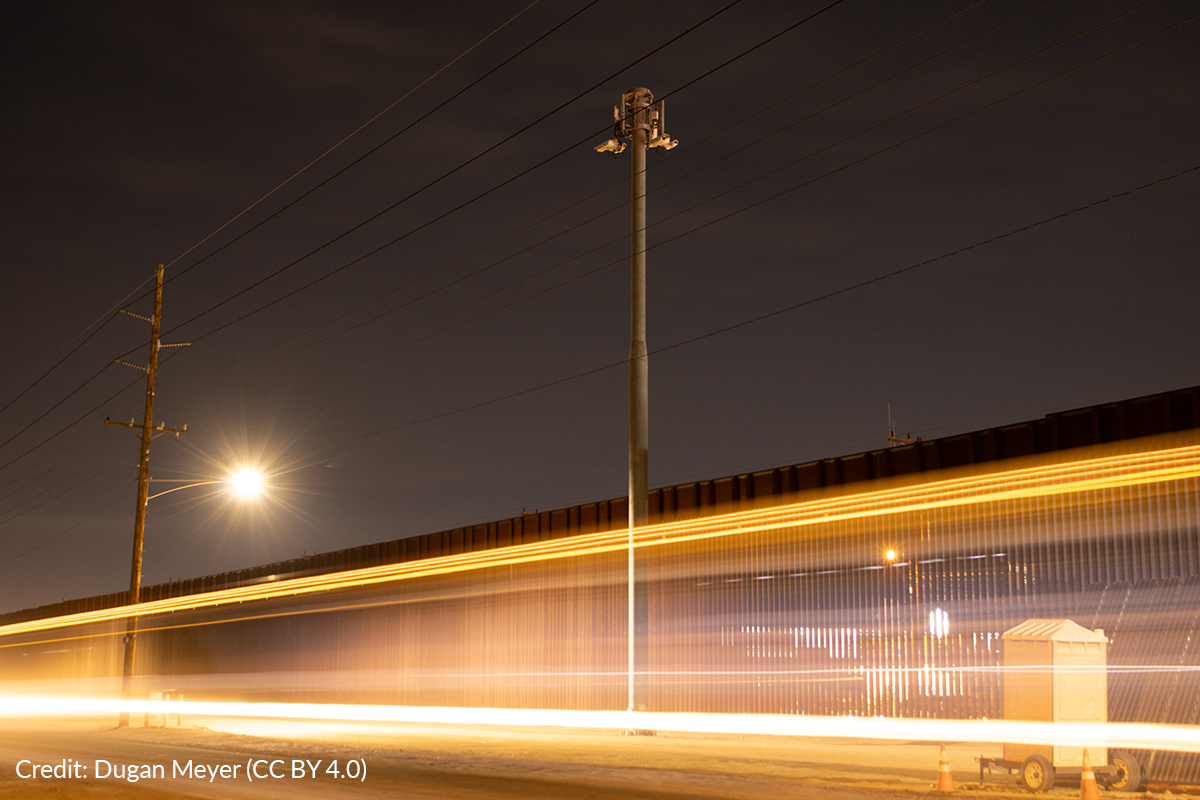On the southwest side of Calexico, a border town in California’s Imperial Valley, a surveillance tower casts a shadow over a baseball field and a residential neighborhood. In 2000, the Immigration and Naturalization Service (the precursor to the Department of Homeland Security (DHS)) leased the corner of Nosotros Park from the city for $1 a year for the tower. But now the lease has expired, and DHS component Customs & Border Protection (CBP) would like the city to re-up the deal.
But times—and technology—have changed. CBP’s new strategy calls for adopting powerful artificial intelligence technology to not only control the towers, but to scan, track and categorize everything they see.
Now, privacy and social justice advocates including the Imperial Valley Equity and Justice Coalition, American Friends Service Committee, and Calexico Needs Change have joined EFF in sending the city council a letter urging them to not sign the lease and either spike the project or renegotiate it to ensure that civil liberties and human rights are protected.
The groups write:
The Remote Video Surveillance System (RVSS) tower at Nosotros Park was installed in the early 2000s when video technology was fairly limited and the feeds required real-time monitoring by human personnel. That is not how these cameras will operate under CBP’s new AI strategy. Instead, these towers will be controlled by algorithms that will autonomously detect, identify, track and classify objects of interest. This means that everything that falls under the gaze of the cameras will be scanned and categorized. To an extent, the AI will autonomously decide what to monitor and recommend when Border Patrol officers should be dispatched. While a human being may be able to tell the difference between children playing games or residents getting ready for work, AI is prone to mistakes and difficult to hold accountable.
In an era where the public has grave concerns on the impact of unchecked technology on youth and communities of color, we do not believe enough scrutiny and skepticism has been applied to this agreement and CBP’s proposal. For example, the item contains very little in terms of describing what kinds of data will be collected, how long it will be stored, and what measures will be taken to mitigate the potential threats to privacy and human rights.
The letter also notes that CBP’s tower programs have repeatedly failed to achieve the promised outcomes. In fact, the DHS Inspector General found that the early 2000s program, “yielded few apprehensions as a percentage of detection, resulted in needless investigations of legitimate activity, and consumed valuable staff time to perform video analysis or investigate sensor alerts.”
The groups are calling for Calexico to press pause on the lease agreement until CBP can answer a list of questions about the impact of the surveillance tower on privacy and human rights. Should the city council insist on going forward, they should at least require regular briefings on any new technologies connected to the tower and the ability to cancel the lease on much shorter notice than the 365 days currently spelled out in the proposed contract.



